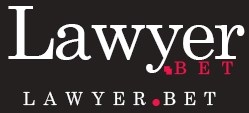The Drawbacks of Trusts: Cons of Placing Your Home in a Trust
Introduction:
Opting to place your home in a trust can be a strategic move for estate planning purposes, providing advantages like bypassing probate, safeguarding assets, and facilitating a seamless property transfer upon your passing. Nevertheless, it’s crucial to acknowledge the potential downsides of this choice. This article will delve into the disadvantages of placing your home in a trust, empowering you to make a well-informed decision that aligns with your financial objectives.
Disadvantages of Placing Your Home in a Trust:
-
Lack of Control: By transferring your home into a trust, you are essentially surrendering ownership of the property to the trust itself. Consequently, you may relinquish some authority over how the property is utilized or managed. While you can still enjoy residing in the home, you might require approval from the trustee to enact significant changes or sell the property.
-
Expenses: Establishing and upholding a trust can incur costs, encompassing initial fees for crafting the trust document, transferring property ownership, and ongoing administrative expenditures. Additionally, you may need to allocate funds for legal counsel and services to ensure the proper setup of the trust and adherence to pertinent laws.
-
Complexity: Trusts can be intricate legal entities characterized by specific regulations and prerequisites that must be adhered to for their validity and efficacy. If you lack familiarity with trust law, navigating the process may prove bewildering and daunting. Furthermore, managing a trust may demand time and effort to maintain compliance with regulations and update the trust as necessary.
-
Restricted Flexibility: Altering or reversing the decision to place your home in a trust can pose challenges. In the event of changing circumstances, such as a desire to sell the property or transfer it to a different beneficiary, you may encounter limitations on your actions regarding the property. Trusts are intended as long-term planning tools, thereby constraining flexibility.
-
Tax Ramifications: The type of trust you select can entail tax implications. For instance, transferring a home into an irrevocable trust may result in forfeiting certain tax advantages or being subject to gift tax regulations. Consulting with a tax professional or financial advisor is imperative to grasp how placing your home in a trust could affect your tax position.
Advantages and Practical Suggestions:
Despite the drawbacks of placing your home in a trust, there are also benefits to contemplate. Trusts offer confidentiality, asset protection, and authority over the distribution of your assets posthumously. To mitigate some of the drawbacks, collaborate with a proficient estate planning attorney to devise a trust that aligns with your objectives and preferences. Regularly reassess and update your trust as needed to ensure its relevance and alignment with your intentions.
Conclusion:
While placing your home in a trust can yield substantial benefits for estate planning, it’s crucial to evaluate the drawbacks as well. Loss of control, expenses, complexity, restricted flexibility, and tax implications are all factors to ponder when determining whether to transfer your property to a trust. By comprehending both the pros and cons of this choice, you can make an informed decision that safeguards your assets and facilitates a seamless property transfer in the future. Seek guidance from legal and financial experts to ascertain the optimal approach for your individual circumstances.
5 Drawbacks of Trusting Your House: What You Need to Know
Introduction
Trusting your house to keep you safe and secure is a natural instinct for many homeowners. However, there are certain drawbacks to relying solely on your home for protection. In this article, we will explore five common pitfalls of trusting your house and provide valuable insights on what you need to know to prevent potential issues.
1. False Sense of Security
One of the main drawbacks of trusting your house is developing a false sense of security. While your home may have strong locks and security systems in place, it is important to remember that no house is completely immune to break-ins or other threats. By assuming that your house is impervious to danger, you may become complacent and overlook important safety measures.
Practical Tips:
- Install a monitored security system
- Use motion-sensor lights around your property
- Keep valuables out of sight
2. Vulnerability to Natural Disasters
Another drawback of trusting your house is its vulnerability to natural disasters. From floods to earthquakes, your home may not be able to withstand certain extreme weather conditions. It is essential to be prepared for potential disasters and have a plan in place to protect your family and belongings.
Practical Tips:
- Invest in insurance coverage for natural disasters
- Create an emergency preparedness kit
- Regularly maintain your home to prevent structural damage
3. Limited Control Over External Factors
Trusting your house also means placing trust in external factors that are beyond your control. Whether it’s noisy neighbors, neighborhood crime rates, or property development in the area, your house may be impacted by factors that you cannot influence. It is important to be aware of these external factors and take proactive steps to mitigate any potential risks.
Practical Tips:
- Get to know your neighbors and community
- Stay informed about local crime trends
- Participate in neighborhood watch programs
4. Maintenance Issues
Trusting your house also means taking on the responsibility of maintaining its structure and systems. From plumbing problems to electrical issues, regular maintenance is crucial to ensure the safety and longevity of your home. Neglecting maintenance can lead to costly repairs and put your family at risk.
Practical Tips:
- Schedule regular inspections of your home’s systems
- Address any maintenance issues promptly
- Keep up with landscaping to prevent mold and pest infestations
5. Privacy Concerns
Trusting your house may also raise privacy concerns, especially in the age of smart home technology. With devices like security cameras and smart assistants becoming more common in households, it is important to be aware of how these technologies may impact your privacy. Ensuring that your data is secure and that your privacy is protected is essential when trusting your house.
Practical Tips:
- Change default passwords on smart devices
- Review privacy settings on connected devices
- Regularly update device software for security patches
Conclusion
While trusting your house is a natural inclination, it is important to be aware of the potential drawbacks that come with relying solely on your home for protection. By understanding these pitfalls and implementing practical tips, you can ensure the safety and security of your home and loved ones. Remember, a proactive approach to home security is key to safeguarding your most cherished possessions.




